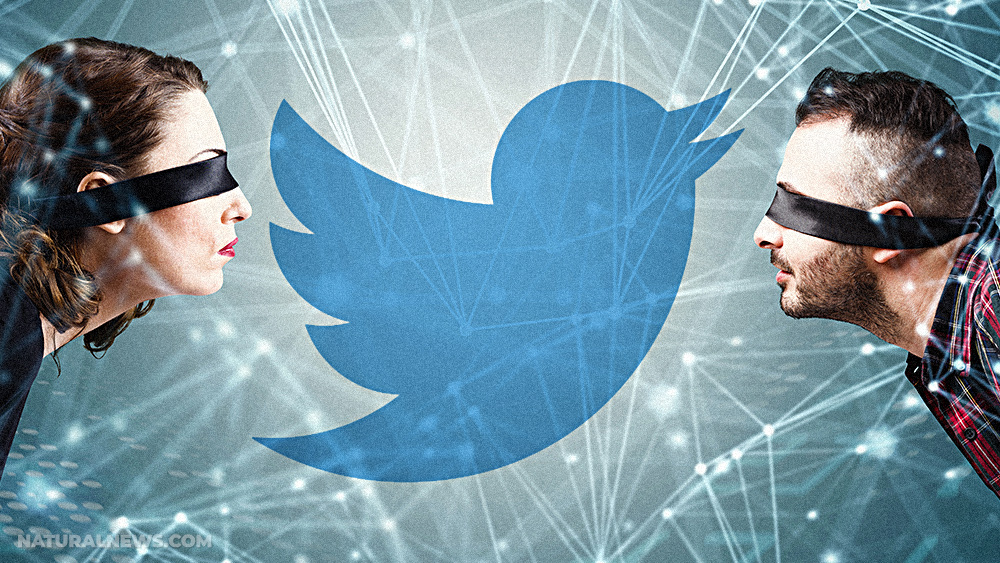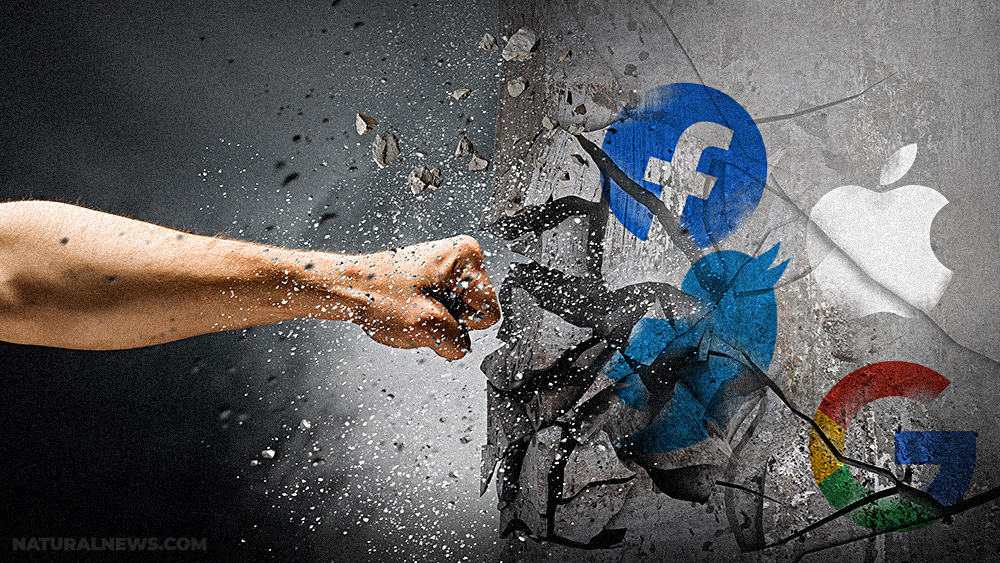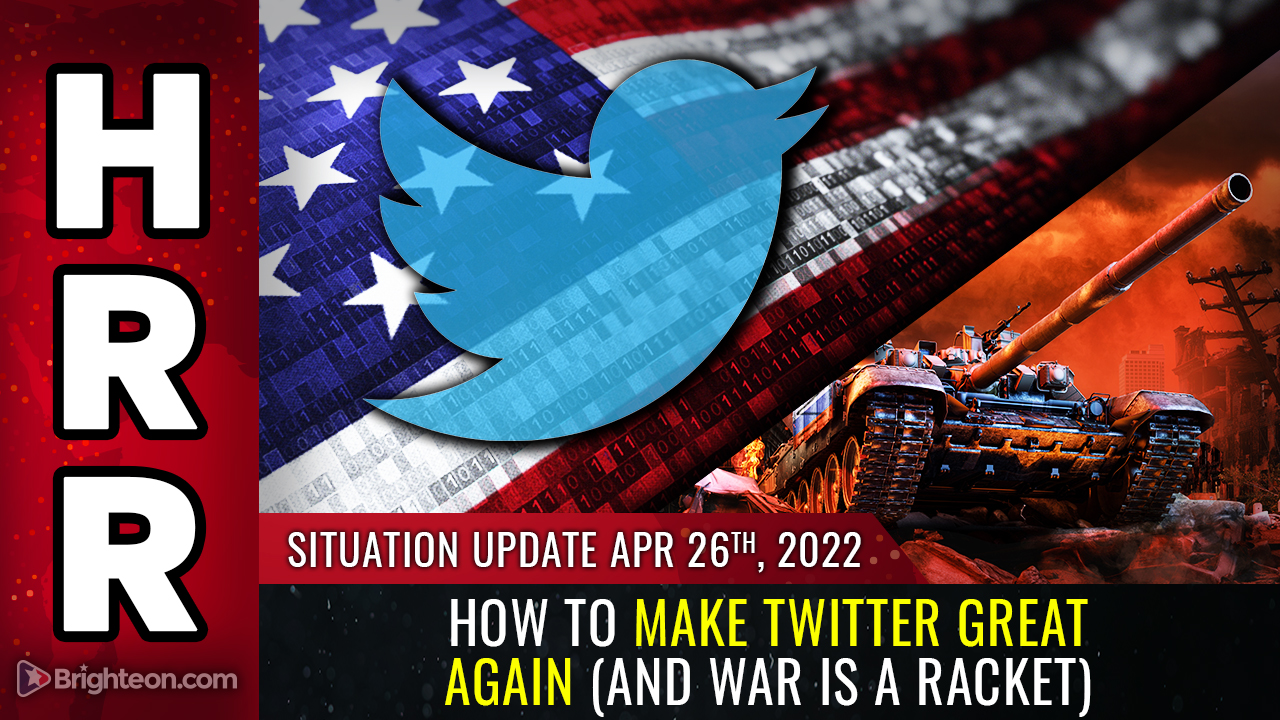Attack on Google Chrome puts user security at risk
05/02/2022 / By Kevin Hughes

Google recently issued a warning that a successful attack by hackers on its Chrome browser has exposed 30 security flaws, including seven high-risk threats to the information of its users.
The attack has affected Windows, macOS and Linux, according to the company’s statement. The identity of the hacker responsible for the hacking is still not known, as well as the exact number of users’ security that has been put at risk.
Google recently announced the increase in hacks to Chrome and other browsers, while several other tech companies have reported hacking vulnerabilities. This was not the only hacking attack on a major company that occurred recently. Last April 25, a Russian group announced that they hacked Coca-Cola and are now selling the data of the soda company.
According to a report from the Daily Mail, Stormous had stolen 161 gigabytes of financial data, passwords and accounts before placing the information on the market for a price of $640,000 or 16 million Bitcoin. The group boasted that it got in and out of Coca-Cola’s system “without their knowledge.” The company said that it already started an investigation and contacted authorities.
A possible message from the group read: “You will win and we will win.” It was later posted on Twitter.
User passwords are no longer safe
With hackers growing bolder and information on the internet becoming less safe, it is also less than comforting to understand how useless most passwords are. A new research has shown that any six, seven or eight character passwords can be hacked almost right away, suggesting that the internet users’ passwords are no longer safe.
In fact, it will not take an hour to hack any password of eight characters or less, regardless of the combination of letters, numbers and symbols. According to United States cybersecurity company Hive Systems, which is based in Richmond, Virginia, any eight-character combination can all be guessed in around 39 minutes.
The way to ensure that your password won’t be cracked is to use 18 characters made up of numbers, upper and lower case letters and symbols.
Be that as it may, internet safety is extremely critical with hackers in every place. And keeping your passwords safe is the minimum any person can do with tech companies making an error on their end.
The YouTube channels of well-known celebrities like Justin Bieber, Ariana Grande, Eminem, among others, were apparently hacked by a Spanish “sh**posting” account.
Numerous accounts have had strange videos uploaded and one of this was called “Justin Bieber-Free Paco Sanz (ft. Will Smith, Chris Rock, Skinny flex & Los Pelaos).”
Paco Sanz is a Spanish criminal presently in prison for deceiving thousands of people by pretending to have an incurable disease.
The video highlights Sanz holding a guitar the wrong way around and singing in Spanish, overdubbed with some complicated synthesized beats.
MailOnline communicated with Google, which owns YouTube, for information on why the videos began appearing and how the accounts may have been jeopardized. (Related: “Google campus” dangers revealed: Schools that have embraced Google are experiencing security breeches.)
Vevo, which is known for providing music videos to YouTube, verified the hack to MailOnline, saying some videos were directly uploaded to “a small number” of Vevo artist channels by “an unauthorized source.”
More news like this can be found at CyberWar.news.
Watch the video below to know how Google can influence everything online.
This video is from the Signposts channel on Brighteon.com.
More related stories:
How to stop Google Chrome from mining your personal information.
Google is creating an AI GOD, whistleblower Zach Vorhies warns – Brighteon.TV.
Sources include:
Submit a correction >>
Tagged Under:
Big Tech, computing, cyberattack, cybersecurity, cyberwar, data security, Glitch, Google, google chrome, hacker, information technology, privacy watch, search engine, tech giants, technocrats, terrorism
This article may contain statements that reflect the opinion of the author
RECENT NEWS & ARTICLES
COPYRIGHT © 2018 TECHGIANTS.NEWS
All content posted on this site is protected under Free Speech. TechGiants.news is not responsible for content written by contributing authors. The information on this site is provided for educational and entertainment purposes only. It is not intended as a substitute for professional advice of any kind. TechGiants.news assumes no responsibility for the use or misuse of this material. All trademarks, registered trademarks and service marks mentioned on this site are the property of their respective owners.



















